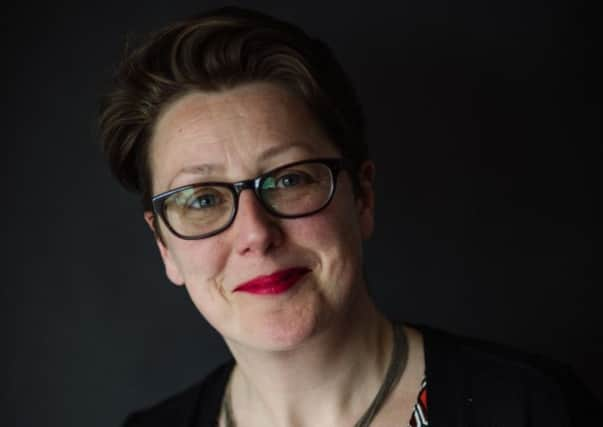Lucy Mulvagh: We must recognise that childhood trauma can affect someone’s whole life


In very simple terms, ACEs are traumatic events that negatively impact a child’s mental, physical or emotional wellbeing and can lead to health problems in adulthood like cancer, diabetes and obesity.
Taking ACEs into account when addressing social and economic issues like ill-health and inequality (an ‘ACE-informed approach’) can reduce their occurrence and impact. This will have a profoundly positive impact on people, families, communities, and the nation as a whole.
Advertisement
Hide AdAdvertisement
Hide AdLast year in particular, talk of ACEs seemed to explode. This was thanks in part to several factors, including widespread screenings of the documentary Resilience; a burgeoning social media network; the creation of several local hubs; and a national event featuring high-profile advocate and paediatrician Nadine Burke-Harris from America.
My organisation, the Health and Social Care Alliance Scotland (the ALLIANCE), believes that an ACE- informed approach has the potential to transform health and social care for the better.
We organise Resilience screenings and community discussions and have just published a new report on ACEs. Our community link practitioners are ACE-aware in their work, supporting people in several Glasgow GP practices, and thousands of people use the ALISS online tool to get information about local support. It is encouraging that tackling ACEs has support at the highest levels in Scotland, including dedicated plans in this year’s Programme for Government. Public services around the country like the police and councils are beginning to act, and it feels as though the impetus to become more trauma-informed is unstoppable.
Yet, over the holiday period, I became aware that ACEs still aren’t as well known as they need to be. Although understanding is growing, more effort is needed across all sectors.
We need businesses, offices, town and community planning to be as well-versed in ACEs as the more ‘obvious’ places like hospitals, prisons, schools and courts. The effects of adversity in childhood can reverberate in many areas of adult life and we need to work in a more joined up way if ACEs are to become public knowledge. We also need to normalise the conversation about ACEs – they are incredibly common and nothing to be ashamed of. Integrating routine ACE inquiry into everyday processes can empower those who deliver as well as access services by shifting the focus from “What’s wrong with you?” to the much more important “What’s happened to you?”
I was struck that during recent hospital appointments I was asked numerous times – “for public health reasons” – whether I might have come into contact with mad cow disease – but wasn’t asked once if I might have had any experiences that could make minor surgery traumatic for me.
It’s important that any inquiry is done sensitively and with dignity and respect. One example of very good practice is to carry out ACE screening with staff before introducing them to those who access services. Service providers who are reluctant to introduce routine inquiry because they don’t have all the answers need to change their mindset: people do not always need or want a healthcare solution or quick fix regarding ACEs. In some circumstances, simply recognising and appreciating that childhood experiences can affect later life is of greatest value.
As public awareness increases, and trauma-informed practice develops, we must ensure that the number of adverse events someone has experienced are seen as guidelines and not a new label to attach to people.
Advertisement
Hide AdAdvertisement
Hide AdACE inquiry is the beginning of helping people, families and communities to recognise trauma and lead to personalised care and support. Therefore, we need quality guidance and support for adults who have experienced childhood adversity and strategies and practical steps readily available for those that want them. Third sector organisations, including many ALLIANCE members, have a vital role to play. These organisations work with and for people and communities, providing frontline support and a vital link between public sector policy makers and citizens.
Although we need to overcome stubborn professional resistance to ACEs, there’s a balance to be struck because it’s essential that ACEs don’t become over-professionalised; otherwise they risk becoming yet another thing that’s done ‘to’ us, rather than ‘with’ us. Without clear information and conversation about what ACEs are – and aren’t –they can be easily misinterpreted as blame and shame.
Ensuring that people affected by ACEs continue to lead Scotland’s burgeoning movement, and maintaining a focus on community-based activity as well as professional practice, will help promote common understanding and ownership, and challenge myths and misunderstandings.
In our push to make Scotland the world’s first ACE-aware nation, let’s make sure everyone can be part of the conversation.
Lucy Mulvagh, director of policy and communications, Health and Social Care Alliance Scotland (the ALLIANCE).